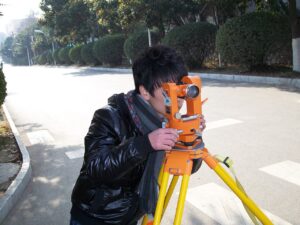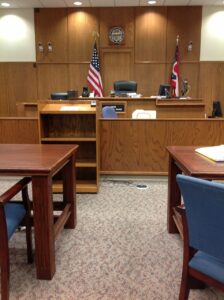If you are considering buying or selling a property in Massachusetts, there is a myriad of things to consider. One aspect of buying a property that is often overlooked is the property boundary. Sellers may think that they know the boundary lines well and in many cases they do. However, they may be going on information that has been given to them by a previous owner or may even be going on guess work or relying on what their real estate agent told them when they bought the property. Does knowing the exact boundaries matter? Yes, it does, or at least it could do, and if you have built an extension, a building, such as a garage, or a driveway and have actually encroached on a neighbor’s property then it could be expensive rectifying the mistake.
How are boundary lines determined?
Many property owners think that existing structures such as fences and other physical structures show where the boundary lies between their property and that of their neighbors. But this may or may not be true. The exact property boundaries are held on land records for that particular property and these records are stored in the local registry of deeds, which is usually in an office of a municpal or county court.
These exact boundary lines may or not be marked physically on the property. It is not at all unusual for any original markers to go missing or become obscured or built on over a long period of time. These days, when a boundary is marked, stakes colored typically orange may be used to mark the corners of the boundary. It is worth keeping an eye on these markers if you have bought a property with the boundary marked in this way, even giving them a spot of orange paint work from time to time.
A land surveyor can be used to mark a boundary after determining where it lies from the land records. This has to be done carefully as the boundary may have been recorded in written form, with lengths in feet and inches and directions along a compass course between one corner and the next.
Is it worth having a property’s boundaries surveyed if you are contemplating buying it?
The short answer is ‘yes’. It is unwise to totally rely on where the real estate agent thinks is where the boundary lies and certainly what the seller thinks are the boundary lines. It may be that even if the boundary hasn’t been determined correctly by previous owners and there is an encroachment of some type on a neighbor’s property which no-one seems to have been aware of, then it may be you who has to deal with a property dispute which could arise sometime in the future.
Having your potential new property surveyed correctly could save you time and money in the future. If you have built on your neighbor’s land unintentionally or made a new drive way or a swimming pool which your neighbor determines is an encroachment, then this could end up in court and this could become expensive. If your neighbor is able to prove that you have encroached on his/her land, not only will you have to remove any thing which you have put there, but there may be legal and court fees as well to pay.
There is another important reason for having a property you are considering purchasing surveyed by a professional land surveyor. This is when you need a mortgage to purchase the property. Most lenders will require title insurance to insure against encroachments either made on the purchased property or on a neighbor’s property by the land being purchased. A survey helps to ensure that title insurance can be obtained.
Sellers have no responsibility to know where the property boundary lines lie
In Massachusetts, sellers have no legal responsibility to provide a survey showing the boundary lines. In most cases, they may think that they know where the boundary lines lie, and even if they are wrong may never have had an occasion to have the property boundary disputed. Sellers who are asked by a buyer’s agent about property lines should refer the question to their own listing agent rather than put them in a position of legal liability by definitively giving a determination of where the boundary lies.
Options if you dispute boundary lines
If at some point you believe that your neighbor has encroached on your property, i.e. has made use of a portion of your property unintentionally, then you should first try and resolve the matter as amicably as possible. A recent survey is the best way forward to prove that an encroachment has been made. The survey should have been prepared and marked out by a certified land surveyor using the land records retained for your property and adjacent properties.
If your neighbor refuses to resolve the dispute, then you may need an attorney to provide legal advice about your rights under Massachusetts law and what options you have to take the matter further. Massachusetts has its own Land Court which can be used to settle a boundary dispute. The judges and staff who are involved in the state’s Land Court are more familiar with the legal issues involved with property boundary disputes. More serious cases of encroachment which cannot easily be resolved through the Land Court may also be taken to the Superior Court.
Be aware that Massachusetts, like most other states, allows what is called ‘adverse possession’ of real property. Adverse possession is something that non owners who have been in continuous possession of a portion of a property for a long time may be considered owners after making a claim, even if there is a survey which shows that they have encroached on their neighbor’s property. Adverse possession may be one of the factors behind a property dispute ending up in the Land Court despite a recent survey having been prepared by a qualified surveyor.
For more information, visit our website Mucci Legal or contact us for a free initial legal consultation today.


